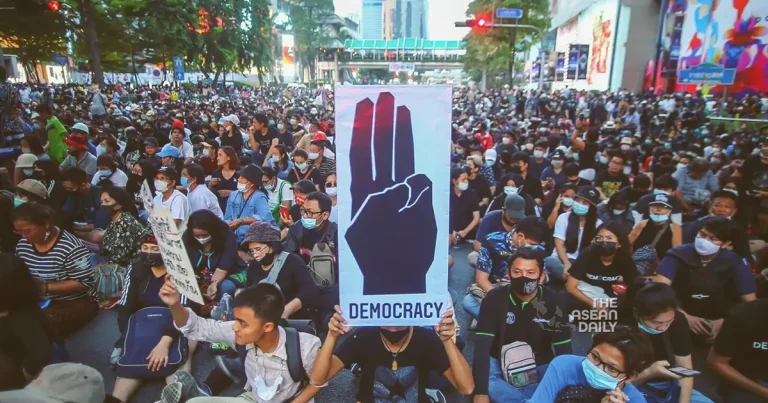18-1-2024 (BANGKOK) A Thai man has been handed a historic prison sentence of 50 years for criticizing the monarchy, marking the longest jail term ever imposed under Thailand’s strict laws against royal insult. The sentence comes amidst increased use of the controversial legislation by the Thai government, targeting pro-democracy protesters and raising concerns about the stifling of dissent.
Mongkol Thirakot, a 30-year-old former pro-democracy activist, was sentenced by an appeal court in Chiang Rai, a city in northern Thailand. The court found him guilty on a total of 11 counts related to posts made on his personal Facebook account, adding to the initial 28-year sentence given by a lower criminal court. As a result, Thirakot’s total prison term amounts to 50 years.
According to Thai Lawyers for Human Rights (TLHR), the appeal court imposed the sentence of 22 years for Section 112 offenses, referring to the lese-majeste law that protects King Maha Vajiralongkorn and his immediate family from criticism. This 112-year-old law has been widely criticized for its severe consequences on freedom of speech and expression.
The 50-year sentence surpassed the previous record of 43 years, which was imposed on a woman in 2021 for royal defamation. This unprecedented sentence reflects the government’s determination to clamp down on dissent and suppress any criticism of the monarchy.
Thirakot, who operates an online clothing store, was initially arrested in 2021 during a protest demanding the release of political prisoners. The demonstrations, led by the youth in 2020 and 2021, witnessed a significant number of participants calling for reforms to the stringent lese-majeste laws.
In response to the verdict, TLHR announced that Thirakot would file an appeal with the Supreme Court in hopes of overturning the sentence. The organization also highlighted that since the beginning of the 2020 protest movement, over 250 activists have faced charges under the lese-majeste laws.
This ruling comes just one day after another prominent protest leader, lawyer Arnon Nampa, had his original four-year lese-majeste sentence extended by an additional four years. The cumulative effect of these harsh sentences serves as a clear warning to those who dare to challenge the monarchy’s authority.
The widespread use of the lese-majeste law has drawn international criticism and raised concerns about human rights violations in Thailand. Activists and human rights organizations continue to call for the repeal or reform of this law, emphasizing the importance of safeguarding freedom of expression and promoting democratic values.
As Thirakot’s case highlights the escalating crackdown on dissent in Thailand, it underscores the urgent need for international attention and action to protect human rights and ensure justice is served. The severity of the sentence imposed on Thirakot sends a chilling message to those who wish to exercise their right to free speech and challenges the notion of an open and democratic society in Thailand.




